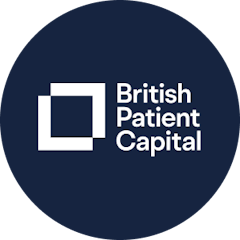Why we're educating our team on the subject of Male Health
Wellbeing· 7min January 30, 2024
Last year, we started educating our teams on the topic of Women’s Health. It’s a topic that’s close to our hearts and so we wanted to normalise conversations around topics such as menstruation and menopause.
Around 75% of our population here at Form3 identify as male, however, and so it seems even more important that we educate ourselves to be better able to support our colleagues. It is shocking, but statistically 1 in 5 men won’t make it to retirement age. That’s not just our male colleagues. That’s also our friends and family members that may be impacted by physical or mental health issues.
Inspired by a webinar on the topic of Men’s Health that we attended during Men’s Health Awareness Week in June in 2023, we decided to educate our team on the topic and are since determined to break the stigma and create an open culture of empathy and acceptance.
Work is a huge part of our lives and if we want to bring our whole selves to work, then we need to be able to discuss our health openly and honestly. So, we created an internal on-demand training video and a dedicated Men’s Health Hub Page that is loaded with information and resources that we have available internally, but also signposts charities such as Movember and Mentell where support is available externally.
We have since educated our team on the topic of:
01
Cardiovascular Health - Men’s health is about heart health. In fact three-quarters of premature deaths from coronary heart disease are male (Source), and erectile dysfunction can be an early warning sign to heart disease and circulation problems (as well as low levels of testosterone and diabetes) (Source). If you’re intrigued the Men’s Health Forum has some great resources on this and other topics.
Here at Form3, our team can use their Health & Wellness Allowance to order a home testing kit to get their bloods and testosterone levels checked.
02
Mental Health including Postnatal Depression - Men may be less comfortable talking about ‘wellbeing’ or ‘mental health’, so try to use terms such as ‘stress’ or ‘burnout’ to make the topic more relatable. Ask… and ask again - A lot of men will say they’re alright when actually they’re not. So, either ask in a different way, or ask twice (and really listen to their answer).
PND is often associated with new mothers but actually thought to affect as many as 1 in 10 men (Source) provides a variety of useful resources for anyone who is struggling.
Our employees here at Form3 are also supported by our Mental Health First Aiders and have access to qualified therapists via Spill, our EAP.
03
Male-specific cancers and cancers that that affect men more - Because men have a 37% higher risk of dying from cancer and a 67% higher chance of dying from cancers that affect both men and women (Source).
We’ve published external resources such as the Check Your Pair – A How-To Guide by the Movember Foundation on our internal company hub to make it as easy as possible for our teams to access this information. We also allow our teams paid time off work to get their health screenings done.
As part of Learn with Form3 this month (we offer one company-wide dedicated day of learning per month on a particular topic), the experts from Orchid talked to us about male-specific cancers to raise our awareness. It was a hugely informative day on which we also ran other sessions ranging from breast cancer awareness (hosted by Breast Cancer UK) and gynae cancer awareness (hosted by Eve Appeal) over to alcohol and mental health (hosted by (Alcohol Change UK).
The stigma around men’s health is real and can be dangerous when it leads to a reluctance to seek help, bottling up emotions or missed early detection opportunities.
We are only at the very beginning of our journey to breaking the stigma at Form3, but we are determined to do so.
Written by










 Back to Blog
Back to Blog